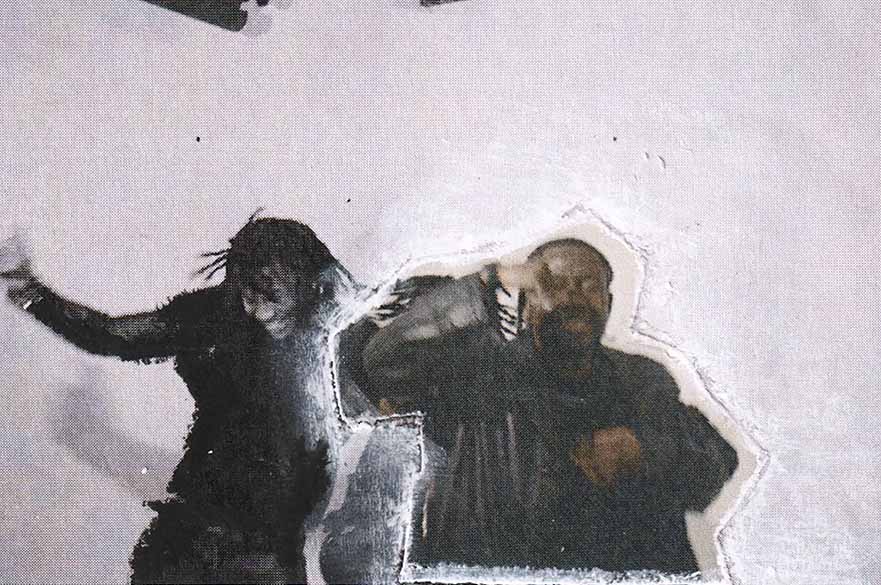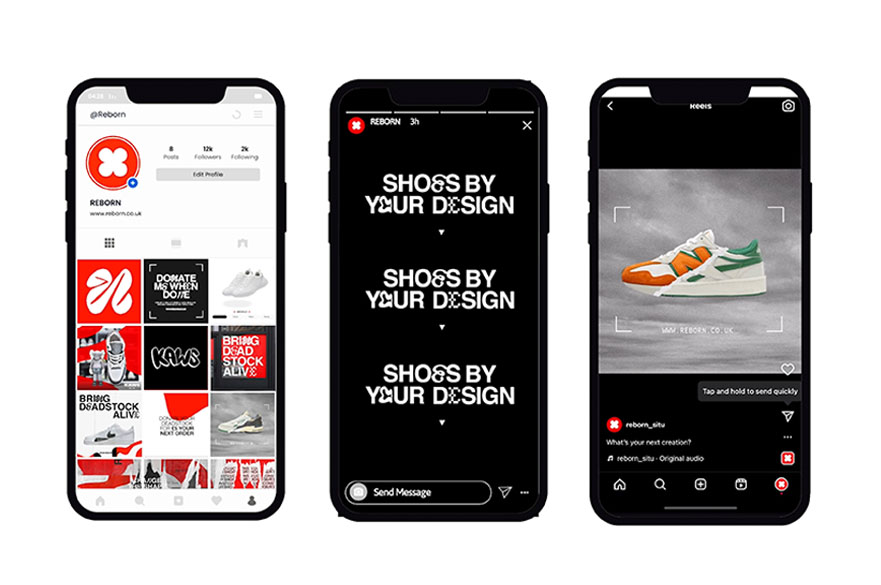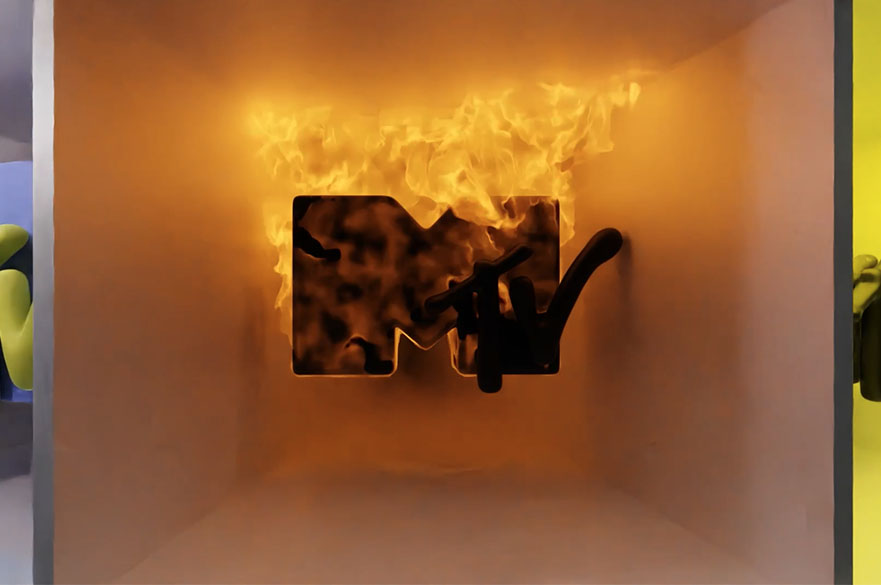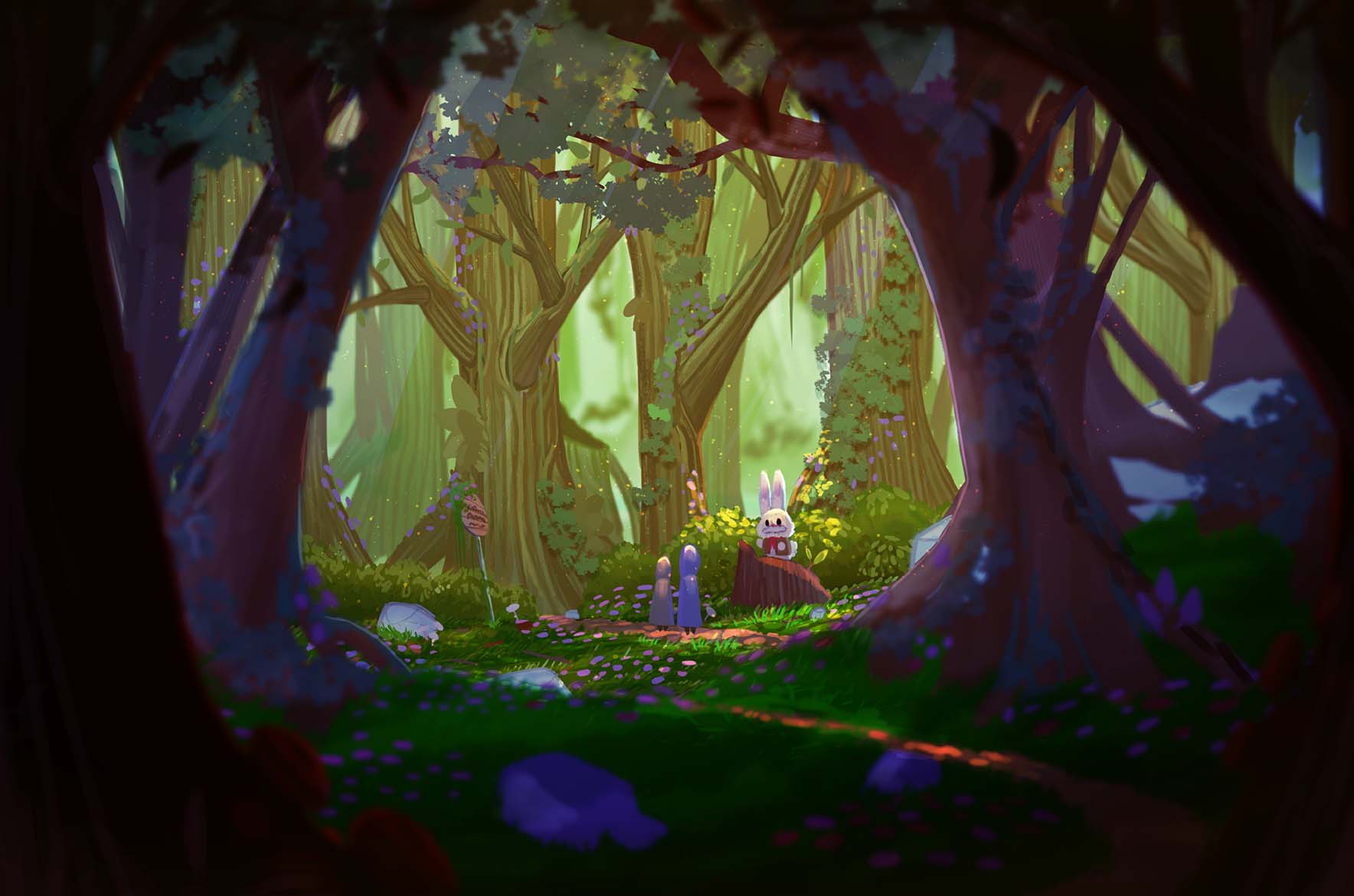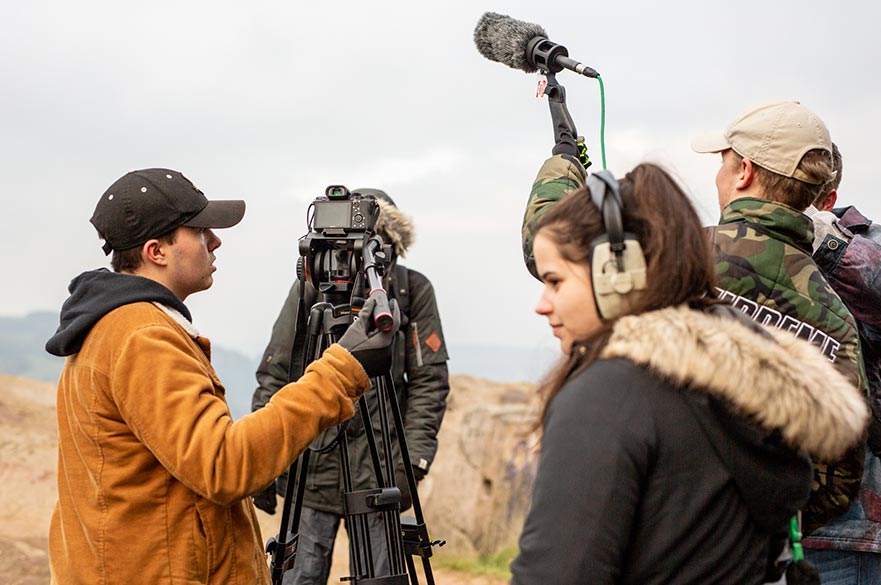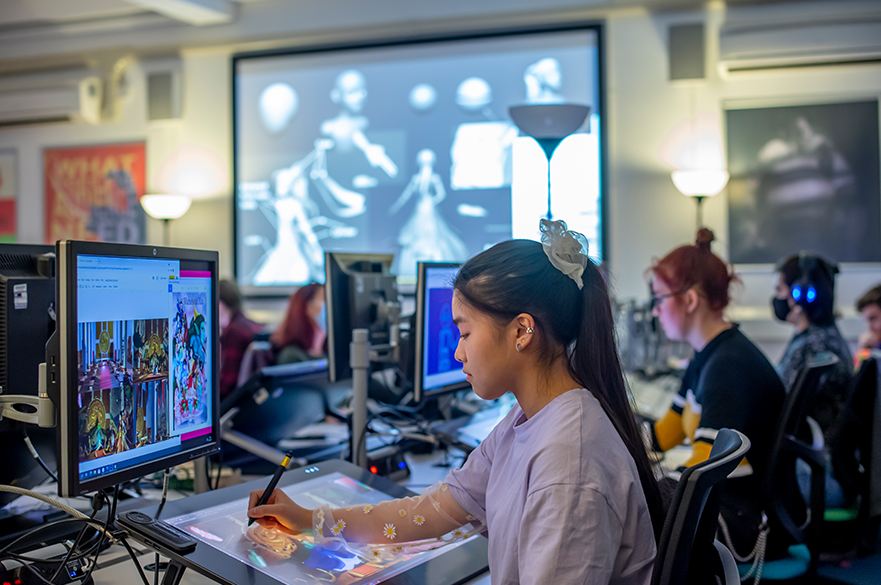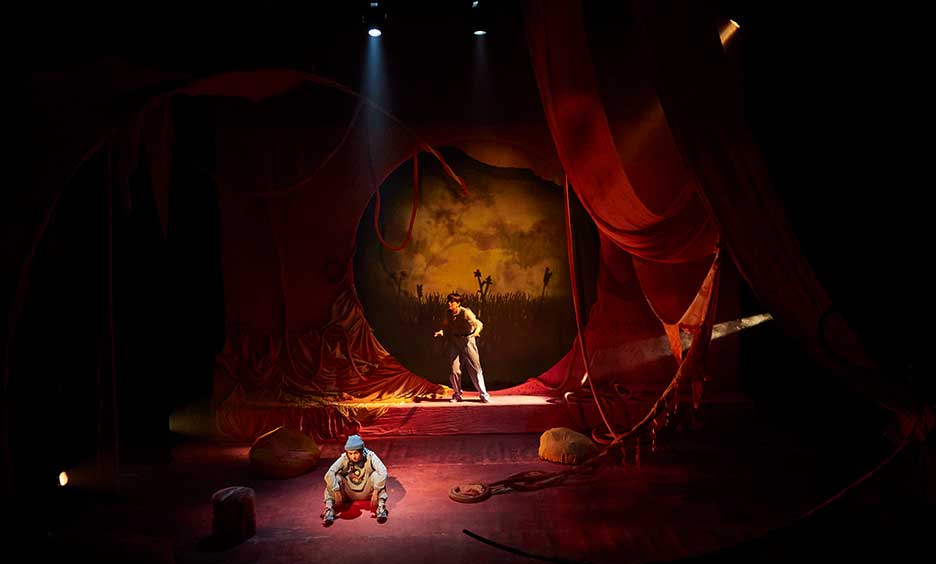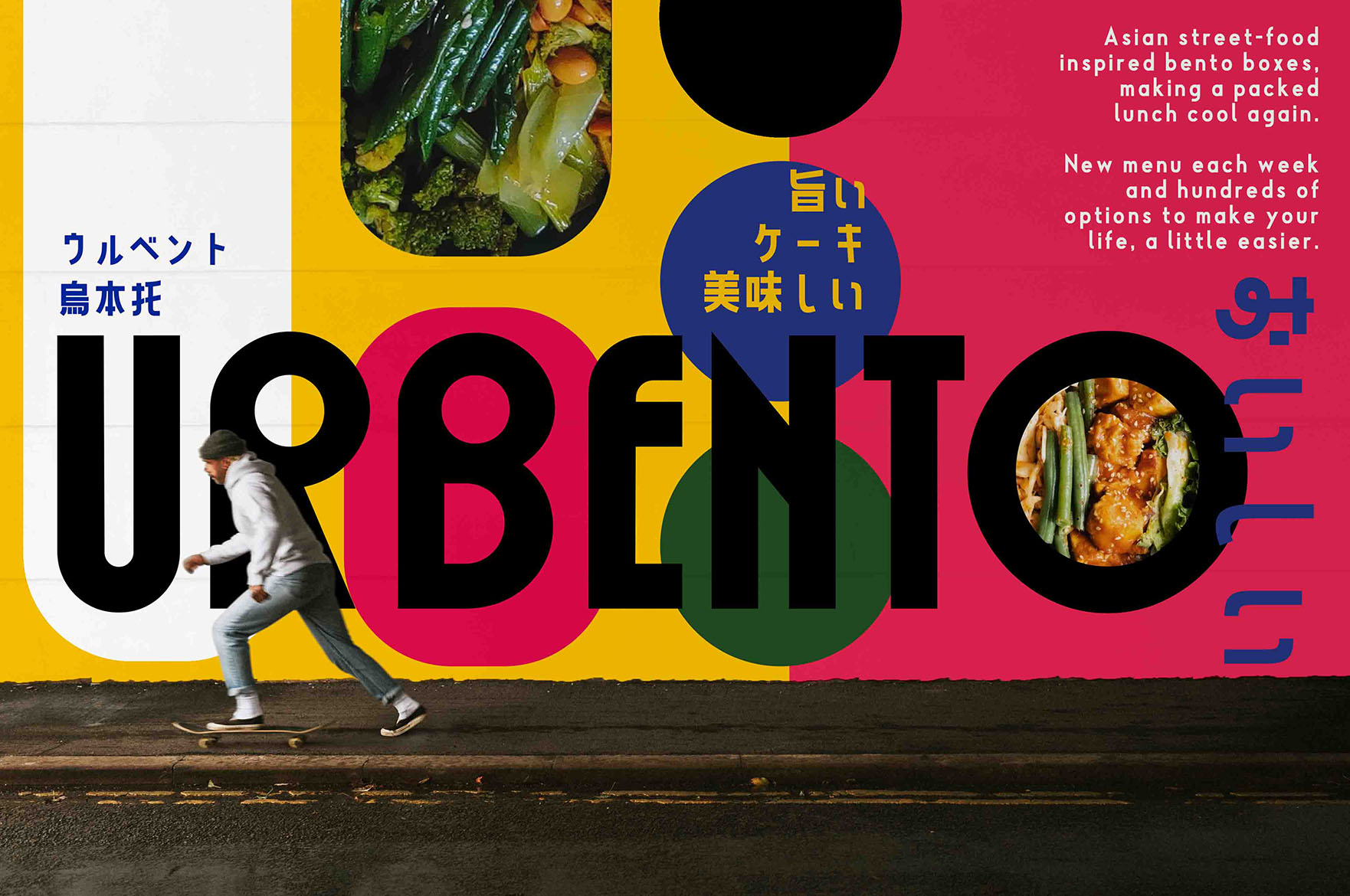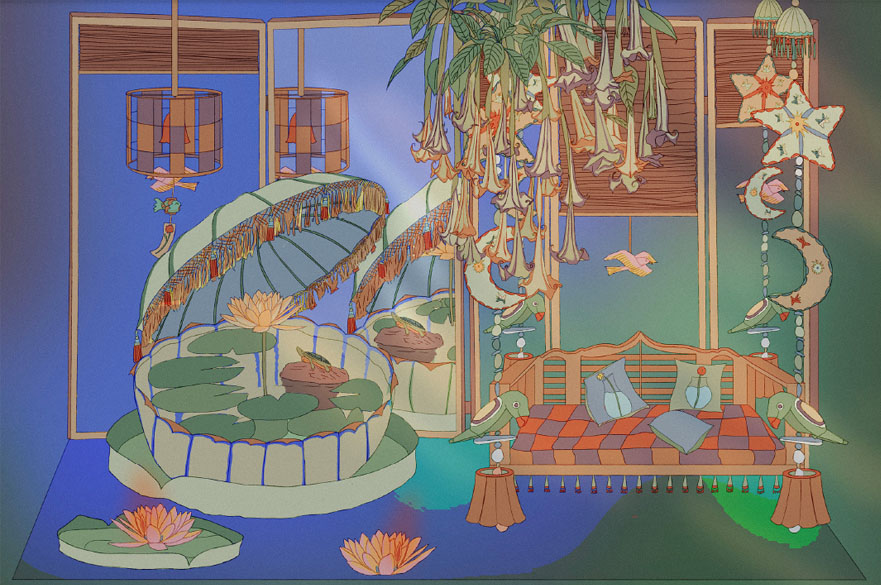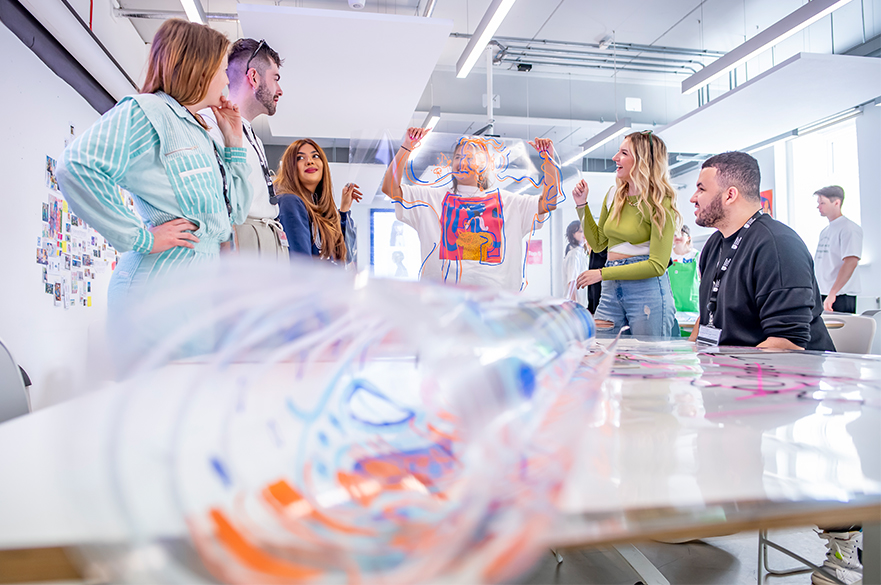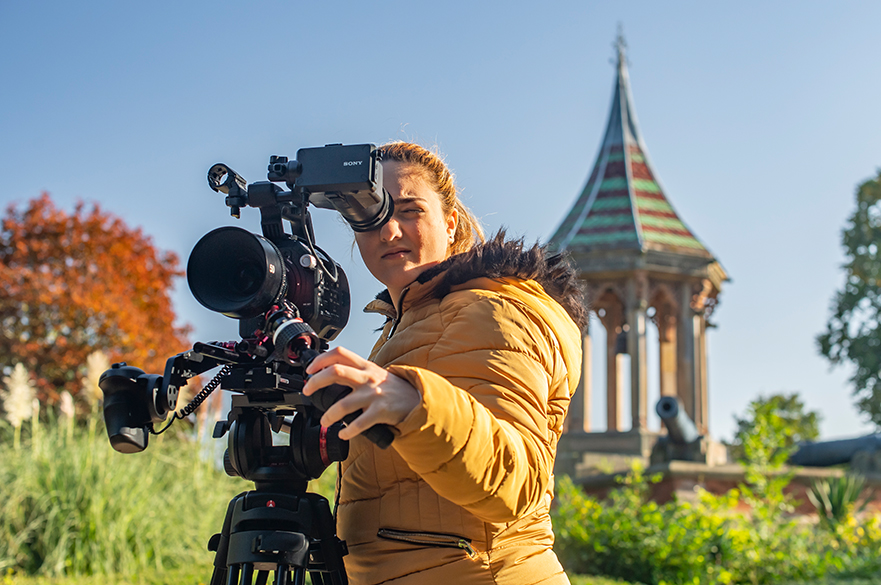Beat the Clearing queue
About this course
Operating at the intersection of design and creative technologies this Motion Graphics BA Hons course offers a diverse and engaging ideas led curriculum where you will be challenged to think broadly, combining technology, creative thinking, and graphic design fundamentals to test, craft, and shape your individual identity as a motion-based thinker and designer.
Working independently, collaboratively and alongside industry you will acquire the skills, knowledge and understanding to fully embrace the expanding possibilities of this exciting industry and will graduate with a distinct body of work that aligns to your future goals and ambitions.
15
What you’ll study
On our BA (Hons) Motion Graphics course you will work across multiple platforms such as animation, film, UX/UI, VR and AR, through the lens of a motion designer. This course has a module structure that facilitates and celebrates exploration, personalisation and interdisciplinary collaboration with peers and industry partners. Industry engagement is integrated throughout the course with a range of exciting activities including live projects, guest lectures, portfolio reviews, and mentoring. Specialist practical, theoretical, and technical workshops will develop and enhance your professional skill set for the future. In your final year, you’ll have the opportunity to negotiate and select project briefs that align with your future goals resulting in a distinct showcase of personal practice aligned to your future career ambitions.
There is an opportunity for students to undertake a placement year, and transfer to the Sandwich route, please see further details in the ‘Year Three’ section below.
The Fundamentals of Graphic Design
(100 credit points)
Learn about, and begin to practise, the process behind effective graphic design. Focus on topics such as typography, image-making, branding, packaging, editorial design, illustration, and film or animation. Throughout this module you will be developing a portfolio of work that demonstrates your ability to document a design process: including evidence of design research, ideas generation and exploration, as well as appropriate presentation skills.
Design in Context
(20 credit points)
Explore the historical and theoretical issues relating to graphic visual culture on a global scale, which will help you to develop your own critical opinions about the role graphic design has played in the wider social content.
Exploring Motion Graphics
(60 credit points)
This module will provide you with the opportunity to further develop and apply the fundamentals you have acquired in your first year to an exciting range of motion-based project briefs and workshops. You will investigate and interrogate the possibilities and opportunities of motion graphics to as a creative tool to communicate a variety of content to a defined audience. Through exploration and experimentation, you will evidence your design thinking and problem-solving skills using motion and movement as the primary tool for communication. A varied range of technical workshops will support you in developing and honing the knowledge and skills required to deliver your ideas and outcomes to industry standard. You will have the opportunity to work alongside industry on live project briefs set by a variety of creative agencies, ensuring your understanding of the professional context of the subject. By the end of the module, you will have developed your individual visual style, approach and technical acuity and will be able to identify its location within the context of contemporary motion graphics practice.
Motion Graphics in Context
(20 credit points)
This module introduces and explores the wider social, theoretical, political, and cultural contexts, narratives and debates influencing and informing the subject. You will have the opportunity to demonstrate your ability to research, evaluate and analyse a range of topics and present your observations and findings in both verbal and written form. You will further develop the knowledge and skills acquired in your first year and will hone your critical writing skills in preparation for your dissertation in year three.
CoLab Research, Exploration and Risk-Taking
(20 credit points)
Through active participation with team-based problem-solving, you will work together in mixed teams on a project where you will use your creative ideas to generate solutions to the challenge or brief. Your project will allow you to explore how creativity can make an impact in society, as you choose a theme of sustainability, social justice, enterprise and innovation or community. This collaborative learning experience will expose you to a range of new processes and approaches that will develop your creative thinking.
Optional Module
You will also choose one optional 20-credit module from:
- Model Making: Object and Narrative
- Publishing: Experimental Formats
- Typography: Use and Expression
- Digital Marketing and Communication
- Exploring Creative Coding
- Music Video
- Open-source 3D Art
- Virtual Production
Optional Placement Year (Sandwich)
We have an option for all of our students to undertake a placement year (Sandwich) and allow you to decide whether this is right for you once you have completed years 1 and 2 of your course. This time spent working in industry provides our students with crucial work experience, which is highly prized and much sought after by employers upon graduation. If you are successful in securing a placement you will have the chance to gain an additional Certificate or Diploma in Professional Practice, dependent on duration.
The additional placement year incurs a fee. For international students considering the transfer to the 4-yr SW route it’s important to seek advice from the International Student Support team and the Home Office regarding any potential visa implications and costs. For UK students, advice should also be sought regarding SLC eligibility, if applicable.
* If you choose to take the sandwich route option, you will still need to apply for this course with the full-time UCAS code: W212
Developing a personal showcase
(100 credit points)
This module provides you with the opportunity to personalise and negotiate your final year of study in line with your future goals and ambitions. You will be encouraged to explore, experiment, and innovate, challenging the conventions and perimeters of the subject. The sequential nature of the module supports the development of your practice and through on-going reflection and analysis you will define and apply your distinct style and approach to a variety of challenges. You will select project briefs from a range of sources including international and national competition briefs and assessment schemes, staff briefs, industry projects and self-initiated briefs. You will showcase your design thinking, problem-solving, technical acuity and creativity through the realisation of an individual bespoke showcase of practice that is unique to you. The structure of the module supports you in becoming an autonomous thinker and practitioner who can articulate their thinking both verbally and visually and can manage their time and projects effectively - all these transferable skills will ensure you are ready for your professional future. You will leave the course fully prepared for your next step, whether that be professional practice or further study.
Motion Graphics Dissertation
(20 credit points)
In this module you will build on the research and writing skills that you have acquired in Levels 4 and 5 by producing a referenced and illustrated written study. You will have the opportunity to select a visually based issue of your choice to investigate. Your dissertation will demonstrate your ability to independently research appropriate source materials and develop a critical viewpoint on the topic selected through a reasoned and structured argument that encompasses and evaluates relevant artefacts, issues and contexts. The skills of analysis and research developed on the dissertation module will also help you with your studio work.
We regularly review and update our course content based on student and employer feedback, ensuring that all of our courses remain current and relevant. This may result in changes to module content or module availability in future years.
Student Work
Video Gallery
How you're taught
Teaching and learning experiences will include:
- Lectures and briefings
- Studio workshops
- Seminars
- One-to-one tutorials
- Group tutorials
- Peer and self-evaluations
- Verbal and visual presentations
- Teamwork
- Live projects
- Study trips
- Personal development planning
Collaboration across courses
This course offers our new innovative collaboration module. This gives you the opportunity to work collaboratively with your contemporaries from a range of different art and design subjects and beyond. You’ll be working alongside artists, designers, photographers, illustrators, animators, and filmmakers on daring and creative projects that prepare you for a rewarding career in your chosen industry. Your project will allow you to explore how creativity can make an impact in society, as you choose a theme of sustainability, social justice, enterprise and innovation or community.
Exchange opportunities
If you’re thinking about studying part of your degree abroad, the course has exchange agreements with a number of institutions around the world.
Exchanges take place in Year Two of the course. You’ll receive guidance from the University about where you can study, and help in completing your application and arranging your exchange.
Showcase
You will be given the opportunity to exhibit your work during your time at NTU to members of the creative industries. Visit our ‘We Are Creatives’ showcase to take a look at the work of this year's graduating students’.
How you're assessed
Assessment involves strategically placed formative points through-out the course building your skills, knowledge and confidence. This scaffolded approach facilitiates experimentation, risk taking and supports different learning styles. A broad range of assessment types including verbal, visual, reflective as well as written, enabling opportunities to demonstrate skills and abilities in a wider range of contexts.
Careers and employability
You’ll graduate with a bespoke professional showcase of motion[1]based project work that demonstrates your abilities as an agile independent creative thinker and problem solver. You’ll be equipped with the distinctive intellectual, technical, and professional knowledge and skill set required to undertake a wide variety of roles within the creative industries. Areas include broadcast design, exhibition and brand experience, music and entertainment, brand creation, advertising, information design, UX/UI, web and app design, VR/AR/XR, gaming, VFX design and compositing, art direction, creative direction and production design.
Connecting with industry and work placement opportunities
Industry professionals will visit the course to guest lecture and share their experiences. Live projects and competitions will help you to gain real experience of the industry, make contacts, and build your portfolio and CV.
You’ll be encouraged to undertake short periods of work experience alongside your studies. You will normally complete these placements during holiday periods, but you will have the option of taking up to two weeks out of term time, which you can negotiate with your tutor.
In addition, you’ll also have the opportunity to complete a longer work experience or placement, with the chance to gain an additional Diploma or Certificate in Professional Practice, dependent on duration. Course tutors and our Employability team are on hand to support you in applying for placement and professional practice opportunities.
YouFirst – working with our Employability team
Studying a creative degree in a large university has many benefits, none more so than having access to a large employability team.
Our friendly, experienced careers consultants will work closely with you at every stage of your career planning, providing personal support and advice you won't find in a book or on the Internet. You can benefit from this at any time during your studies and for up to three years after completing your course.
Creative Industries Federation
We are members of the Creative Industries Federation (CIF), which means students in the Nottingham School of Art & Design have the opportunity to sign up to free student membership. Creative Industries Federation are an organisation that represents, champions and supports the UK’s creative industries and membership grants students exclusive access to their selection of resources and events to help advance your career and connect with industry.
Campus and facilities
You’ll be based in our new Design & Digital Arts Building. Opening for 2024 admission, our new Design & Digital Arts Building will place Nottingham as a UK hub for film, television, animation, UX design, games design, graphic design and more.
You'll have access to industry-standard facilities which include a virtual production studio, an in-camera VFX studio and a black box studio, as well as collaborative studio spaces, future technology suites and exhibition spaces.
Entry requirements
UK students
- Standard offer: 112 UCAS Tariff points from up to four qualifications
- Contextual offer: 104 UCAS Tariff points from up to four qualifications
Other requirements
To find out what qualifications have tariff points, please use our tariff calculator.
Additional requirements for UK students
There are no additional requirements for this course.
Contextual offers
If you don’t quite meet our entry requirements, we might be able to make you a lower offer based on a range of factors, including your background (such as where you live and the school or college you attended), your experiences and your individual circumstances (you may have been in care, for example). This is called a contextual offer, and we get data from UCAS to help make these decisions. We do this because we believe everyone with the potential to succeed at NTU should have the opportunity to do so, no matter what barriers you may face.
Meeting our entry requirements
Hundreds of qualifications in the UK have UCAS Tariff points attached to specific grades, including A-levels, BTECs, T Levels and many more. You can use your grades and points from up to four different qualifications to meet our criteria. Enter your predicted or achieved grades into our Tariff calculator to find out how many points your qualifications are worth.
Other qualifications and experience
NTU welcomes applications from students with non-standard qualifications and learning backgrounds, either for year one entry or for advanced standing beyond the start of a course into year 2 or beyond.
We consider study and/or credit achieved from a similar course at another institution (otherwise known as credit transfer), vocational and professional qualifications, and broader work or life experience.
Our Recognition of Prior Learning and Credit Transfer Policy outlines the process and options available for this route. If you wish to apply via Recognition of Prior Learning, please contact the central Admissions and Enquiries Team who will be able to support you through the process.
Getting in touch
If you need more help or information, get in touch through our enquiry form.
International students
Academic entry requirements: 112 UCAS Tariff points from up to four qualifications. We accept equivalent qualifications from all over the world. Please check your international entry requirements by country.
Other requirements
English language requirements: See our English language requirements page for requirements for your subject and information on alternative tests and Pre-sessional English.
Additional requirements for international students
If you need help achieving the academic entry requirements, we offer a Foundation preparation course for this degree. The course is offered through our partner Nottingham Trent International College (NTIC) based on our City campus.
English language requirements
View our English language requirements for all courses, including alternative English language tests and country qualifications accepted by the University.
If you need help achieving the language requirements, we offer a Pre-Sessional English for Academic Purposes course on our City campus which is an intensive preparation course for academic study at NTU.
Other qualifications and experience
If you have the right level of qualifications, you may be able to start your Bachelors degree at NTU in year 2 or year 3. This is called ‘advanced standing’ entry and is decided on a case-by case basis after our assessment of your qualifications and experience.
You can view our Recognition of Prior Learning and Credit Transfer Policy which outlines the process and options available, such as recognising experiential learning and credit transfer.
Sign up for emails
Sign up to receive regular emails from the International Office. You'll hear about our news, scholarships and any upcoming events in your country with our expert regional teams.
Getting in touch
If you need advice about studying at NTU as an international student or how to apply, our international webpages are a great place to start. If you have any questions about your study options, your international qualifications, experience, grades or other results, please get in touch through our enquiry form. Our international teams are highly experienced in answering queries from students all over the world.
Policies
We strive to make our admissions procedures as fair and clear as possible. To find out more about how we make offers, visit our admissions policies page.
